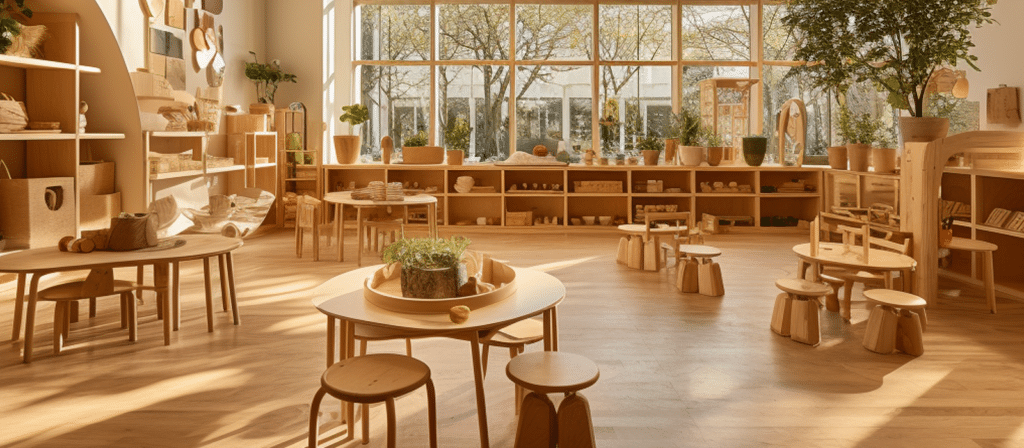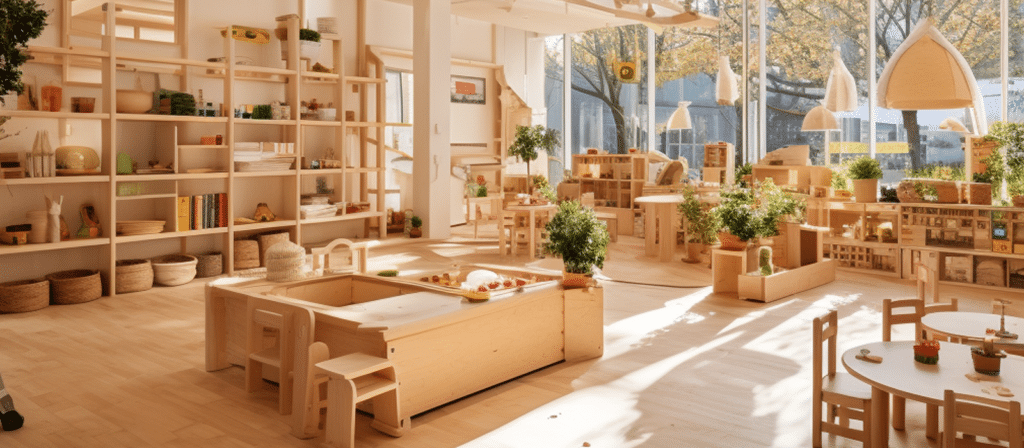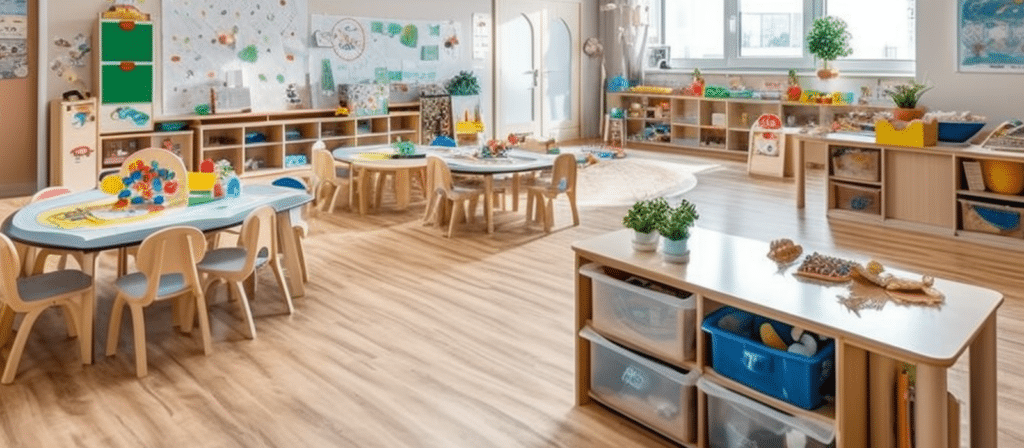Have you ever considered the role of daycare furniture in a child’s development? The table in a daycare setting does much more than provide a place to sit or play. It can significantly influence a child’s physical, cognitive, and social development. Let’s explore how the choice of daycare furniture can profoundly impact a child’s growth and well-being.
The furniture in a daycare setting can either hinder or enhance a child’s development. Carefully selected tables can provide comfort, encourage exploration, and support developmental milestones.
How exactly does daycare furniture impact child development?
Research has shown that the design and arrangement of furniture in a daycare setting can significantly influence a child’s behavior and development. The right furniture can create an environment that encourages exploration, social interaction, and independent thinking. For example, by providing different types of seating options such as bean bags, floor cushions, and small chairs, children are given the opportunity to choose what is most comfortable for them, promoting autonomy and decision-making skills.

Furthermore, daycare furniture can also have a direct impact on a child’s physical development. Ergonomically designed chairs and tables promote proper posture and provide support for growing bodies. This helps prevent musculoskeletal issues and ensures that children are able to engage in activities comfortably and without discomfort. By investing in quality furniture that is specifically designed for young children, daycare centers can help promote physical health and well-being.
In addition to physical development, daycare furniture also plays a crucial role in nurturing a child’s cognitive and emotional growth. Furniture that encourages creativity and imagination, such as art tables, play kitchens, and reading nooks, can stimulate a child’s mind and foster a love for learning. By creating designated areas for different activities, daycare centers can help children develop a sense of structure and routine, which is important for their emotional well-being.
How can daycare furniture promote social interaction?
Daycare furniture plays a crucial role in promoting social interaction among children. By creating spaces that are conducive to collaboration and communication, daycare centers can help children develop important social skills. For example, round tables encourage face-to-face interaction and can facilitate group discussions and activities. Additionally, furniture that can be easily moved and rearranged allows children to work together in different configurations, fostering teamwork and problem-solving.
Can daycare furniture enhance creativity?
Absolutely! The right furniture can provide children with the tools and environment they need to unleash their creativity. Art tables with ample storage for supplies, easels, and comfortable seating can inspire children to explore their artistic talents. Similarly, play kitchens with realistic appliances and child-sized furniture can ignite imaginative play and storytelling. By providing these creative spaces, daycare centers can nurture a child’s imagination and help them develop important cognitive and emotional skills.

Conclusion
In conclusion, the impact of daycare furniture on child development cannot be understated. From promoting physical health and well-being to fostering social interaction and creativity, the right furniture can create an environment that supports and enhances a child’s growth and learning experience. By investing in age-appropriate, well-designed furniture, daycare centers can create spaces that inspire and nurture children, setting them on a path towards a bright and successful future.













